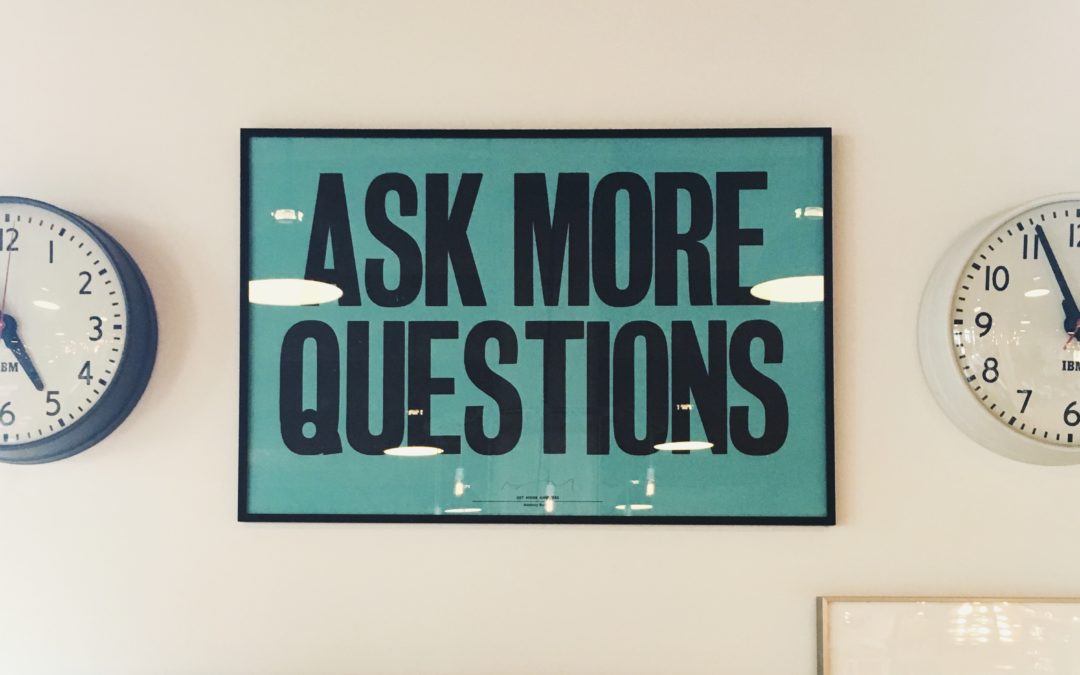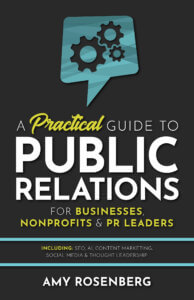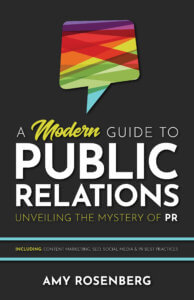As a recent college graduate, I am no stranger to the anxiety of the job hunting process. A lot is left to chance – the current market in your field, catching employers when they need help, and making the right connections. At the end of the day, timing dictates all, and speaking from experience, it can be fickle.
But say the timing works in your favor – you’ve shot your résumé and cover letter to a million offices, you painstakingly wait for just one drop in the bucket, and finally, after what feels like an eternity, you get a pinging notification in your email inbox: “Hello, we have reviewed your submitted materials, and we would like to continue your application for this position with an interview.”
You find yourself overcome with joy at the opportunity to prove yourself to your hopeful future employer. You respond immediately to schedule your meeting, and you send a couple crazed texts to your closest friends (and your Mom) accounting your elation. You open your sliding glass door to the back porch, and twirl in the mid-morning air with the elegance of Snow White, greeting the world as a person who is soon to be employed. But then you stop twirling. The mid-morning air suddenly leaves a chill on your skin. You feel a pit beginning to grow in your stomach.
Why are you experiencing this rollercoaster of emotions? You remember that you do not, in fact, have a job yet. There is one more hurdle to bound, and it is a tall one. You have to actually show up to that meeting that you just scheduled and answer interrogative questions about yourself, proving your worth. Suddenly your excitement turns back to anxiety at the thought of committing a verbal miscue, not being prepared, or forgetting to wear pants.
Interviewing is a challenge, and like most challenges, it requires practice. Not all of the process is out of your control, though. Here are a few things to keep in mind for before, during, and after your interview, to leave you with a better chance at soothing that apprehension, and pinning down that job.
Pre-Interview
Everybody’s Got Goals
When we think about interviews, we typically make them out to be employer-centric. “I’ve got to make a good impression on them.” We assume a great deal of pressure to give the employer what we think they are looking for. But what is the employer looking for? An employee. That was easy. But more specifically, in an interview, employers evaluate candidates based on their applicable skills for the given position, and their competence to get the job done. Employers are also looking for your potential to contribute to the team, and ability to mesh with that team’s mission, philosophy, and work environment.
Just as importantly, before you walk into that office, you should take some time to think about what you want. What should you be getting out of this interview? A job. Again, easy, but more specifically? You want to figure out if the open position is right for you – does the position strike a balance between your interests and the tasks that will be required of you? To what degree will you be given responsibilities and challenges? Is there any potential for growth within the company or further education? Finally, such as is the goal of the employer, will you be able to mesh with the team’s mission, philosophy, and work environment.
Do Your Homework
If you’ve been given an interview, then you’ve probably already done some degree of research on the company. Good! Now do more! There is absolutely no such thing as being too prepared for an interview. Whether it be committing the client list to memory, learning the company’s history, or noting the specific language that the company uses on its website, going into an interview with anything that shows that you’ve done research will boost your credibility, demonstrating your willingness to work diligently and thoughtfully.
In addition to reading what the company has to say, look at outside sources. Reading employee reviews, the company’s Better Business Bureau listing, and inputting a simple Google search can be incredibly informational and will give you a better idea of how to approach your interview.
It might sound silly, but do your homework on yourself. In the interview, you’ll be doing most of the talking, and you want to have concrete topics to address, rather than being caught off guard and having to scramble to get back on your feet. For instance, citing examples of work that you’ve done, or team projects you’ve participated in will show the interviewer your attention to detail and your ability to work in groups. Anticipate questions that the interviewer will ask you, and come up with talking points that you can integrate. Finally, make sure that the information on your résumé is up to date.
This should go without saying, but make sure that you aren’t blatantly lying about any experience or qualifications that you have.
During the Interview
Relax. Breathe.
The time has come! You’ve gotten to the office (early) and you’re putting your car in park. But before you turn off your pump-up music and walk into the office, remember this: as soon as you open the door, the interview has begun. Treat every interaction that you have from the parking lot to the office door as if they’re evaluations of your professionalism. If you should so happen to take public transportation to your interview, try not to swear at anybody.
Now. With that said. Relax. You’re in this position for a reason. If you get any last minute apprehension, harness it. Keep in mind that somebody offered you that interview. If the company didn’t think that you were cut out for the job, they wouldn’t be talking to you. The most important thing to keep in mind throughout the interview is that both of you have goals, and in order to accomplish them, both parties must be honest and clear. All that’s left is to remember your talking points and present a good case for yourself.
Ask
Alright. You’ve talked about yourself extensively, and now it’s the interviewer’s turn. They ask, “Do you have any questions for me?”. Yes, please have some questions prepared for your interviewer. It sure won’t look very professional if they ask you for questions and you respond “Nope,” and walk out the door, thinking that you know everything about the company. This is your time to see how prepared they are. How do they view their company, along with their place in it? It’s important to keep these questions fairly open-ended, with room for them to elaborate. Questions like “What direction would you say the company is heading?”, “What separates you from your competitors?”, or “What does a typical day here look like?” show that you’re genuinely interested in being a part of their team.
The final questions that you ask should direct the conversation back to you. Allow the interviewer to share their feelings about your candidacy on the spot. Start with a general question, like “What is the next step for me in the application process?”, or “Is there any other additional information or materials that I can provide?”. These will remind the interviewer that you will go beyond what is necessary to get the position.
Finally, it’s time to throw down the hammer. Get the last question out there. “Do you have any reservations about myself as a candidate for this position?”. It might seem heavy handed, or a bit blunt, but it’s meant to. Not only will you hear candidly what the interviewer thinks about you, but you will appear confident, giving yourself a final chance to quell any doubt that you’re the one for the job.
Post-Interview
The Interview is Over, But You’re Not Done
You shake hands goodbye, and walk out the door. Remember – just as it started, the interview isn’t over until you get into your car and drive away. But even then, amidst your excitement about how well the interview went, there is still work to be done. It’s no secret that the people who jump off the page, or go the extra mile are more likely to be chosen for a job. So make it easier on yourself – go the extra mile! One or two days after the interview, send your interviewer a personal email thanking them for taking the time to talk to you. Let them know that you are still keen on securing the position, and that you would make a good asset to their team.
Here’s a tip that’ll garner you some extra brownie points, free of charge: hand write that note, drive back to the company’s office, and hand deliver it to its recipient.
While much of finding a job comes down to some form of luck, the trick is to control what you’re able to control. Committing to doing your research, reminding yourself that you deserve the opportunity, and going the extra mile put you in a much better position for landing that job you want. That, paired with good timing, will result in Snow White twirls – I promise.





